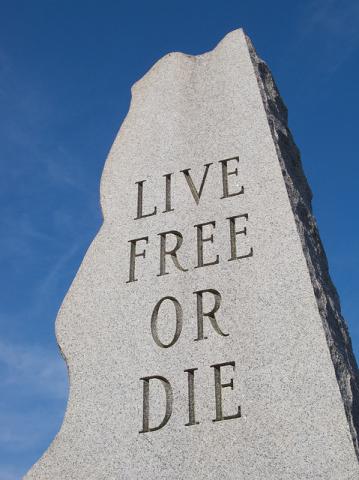This editorial by Douglas Darrell, a New Hampshire Community Rights Network (NHCRN) board member, was published on Fosters.com, October 9th, 2018.
ll people are born with inalienable rights — the right to practice one’s chosen religion, to exercise free speech, etc. These rights define our personhood and cannot be transferred from person to person; they are inherent. They are also the core of our country’s founding principles and the riveting power behind the phrase “We the People”: each person is created equal and deserves the same human and legal rights.
However, courts have dictated that corporations have the same ‘personhood.’ Their rulings have applied the rights of a single human to the conglomerate of individuals who make up a corporation. In other words, by virtue of individuals in a corporation having inalienable rights, the corporation has these same rights, even though, by definition, inalienable rights aren’t transferable.
These claimed corporate ‘rights’ were first recognized in 1886′s State of California vs. Southern Pacific Railroad Supreme Court decision. Despite dissenting opinions, presiding Justice Waite stated that corporations “are guaranteed the property right written in the 14th Amendment.” Over the next 30 years, the 14th amendment was used less than 20 times to defend the rights of freed slaves and over 200 times to defend the property rights of corporations.
So even though corporations are man-made, they are court-recognized as having “God-given” or “Creator-given” or “DNA-given” (fill in your worldview) rights, i.e. we have given the power of individual personhood to a special class. This reality is unseemly considering that both our federal and state Bill of Rights were written for the protection of the rights of sovereign individuals, not for a special class of people (e.g. those in a corporation) who are unified in the pursuit of special privilege, which is different than rights. MORE…

